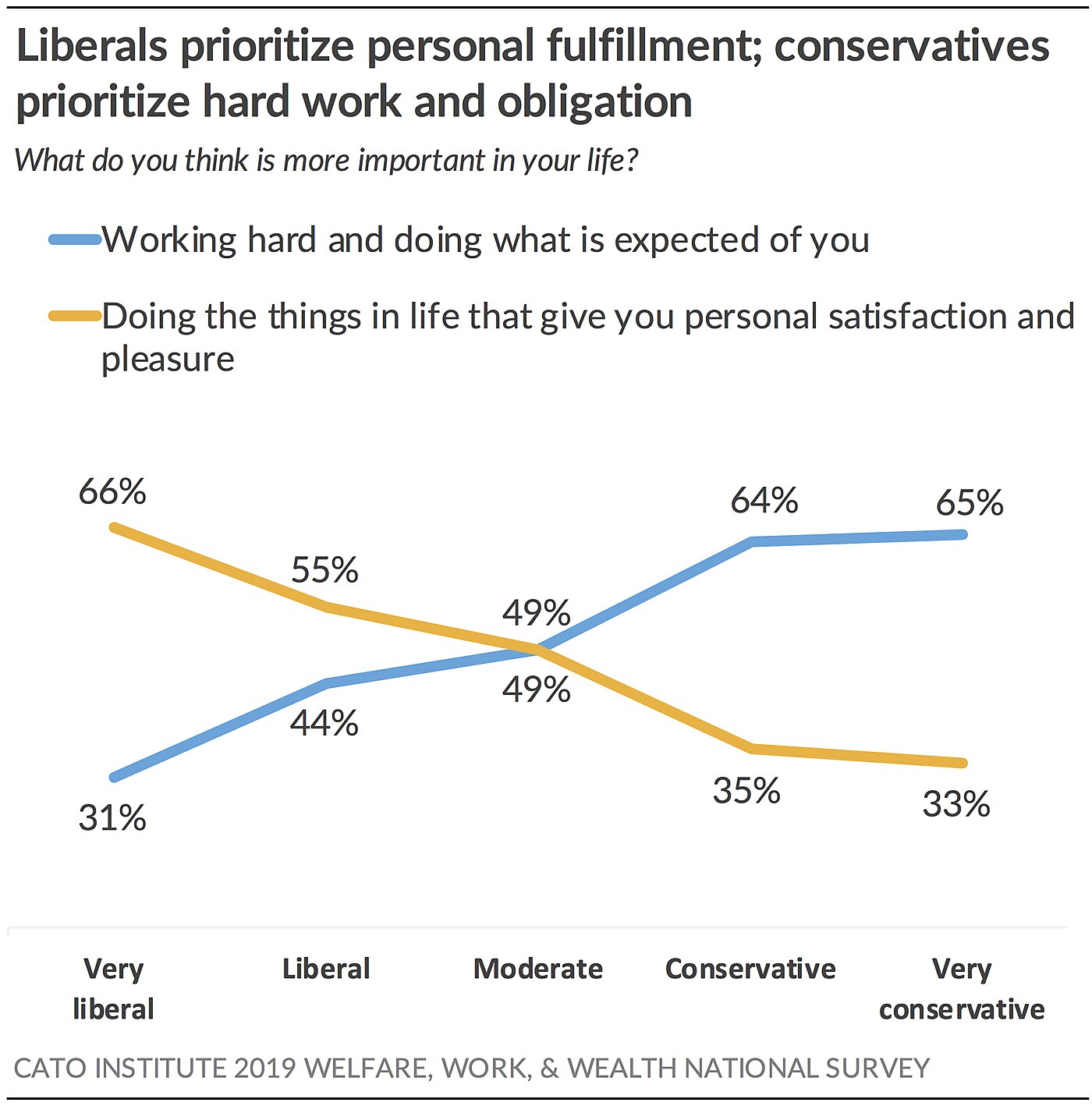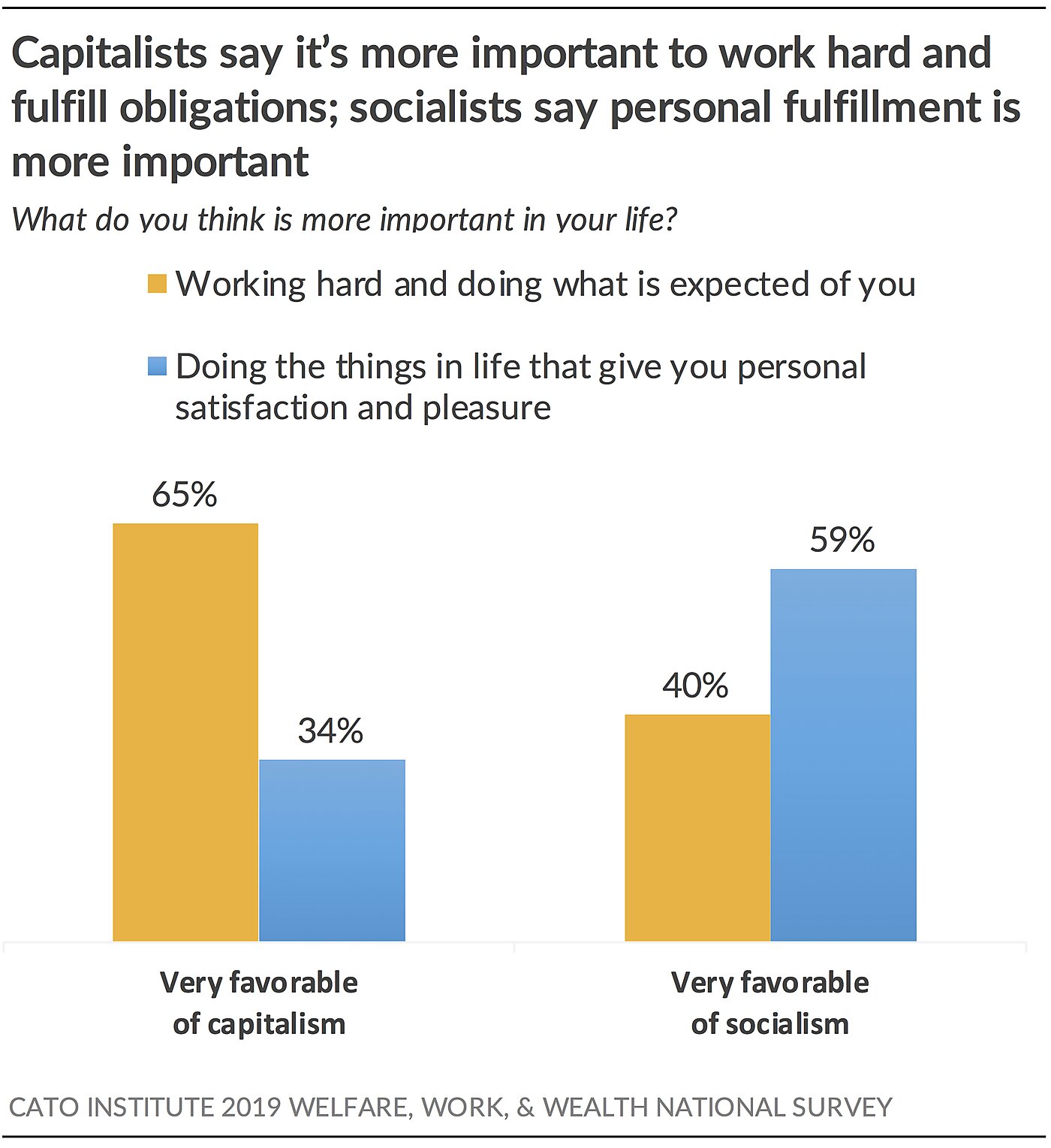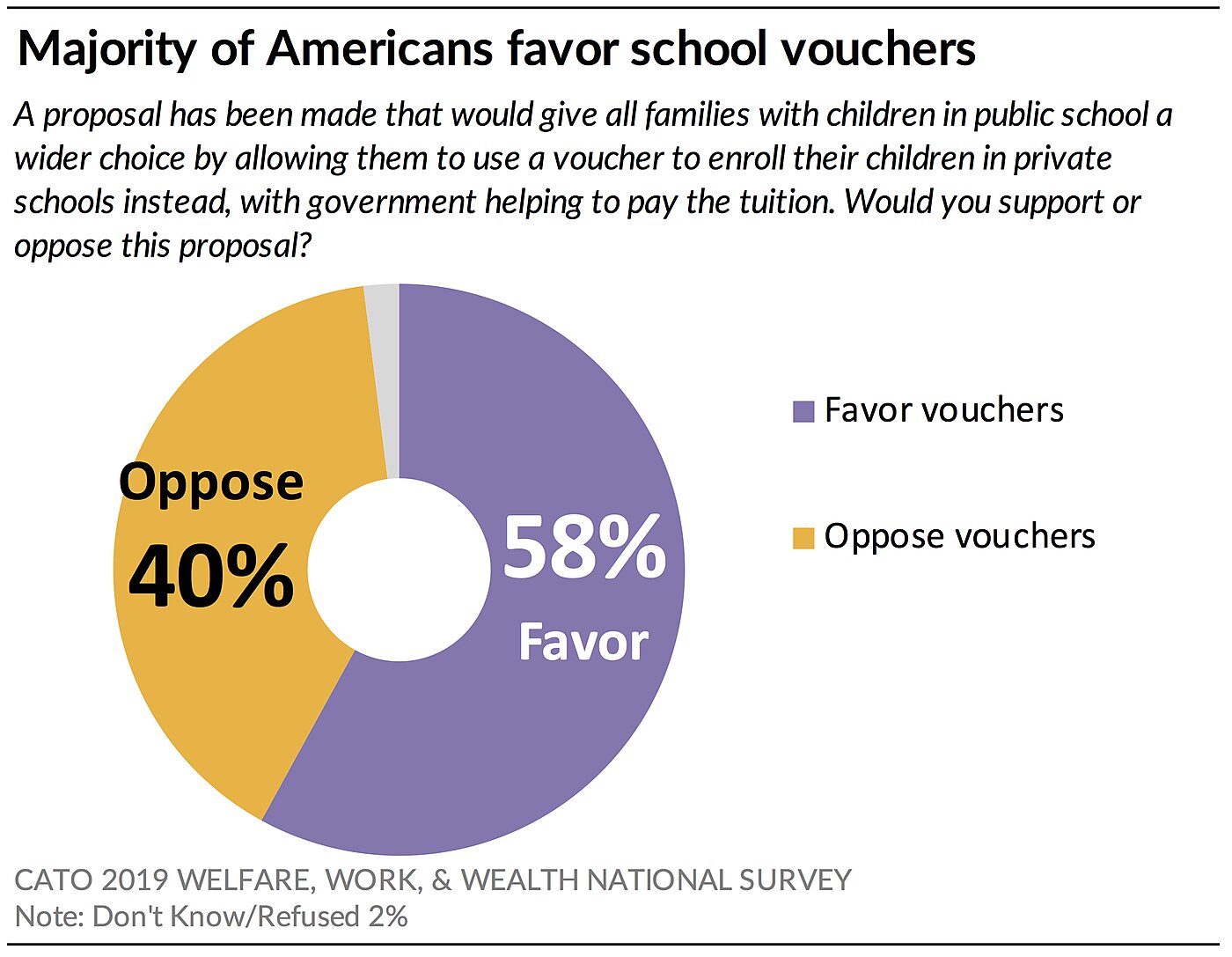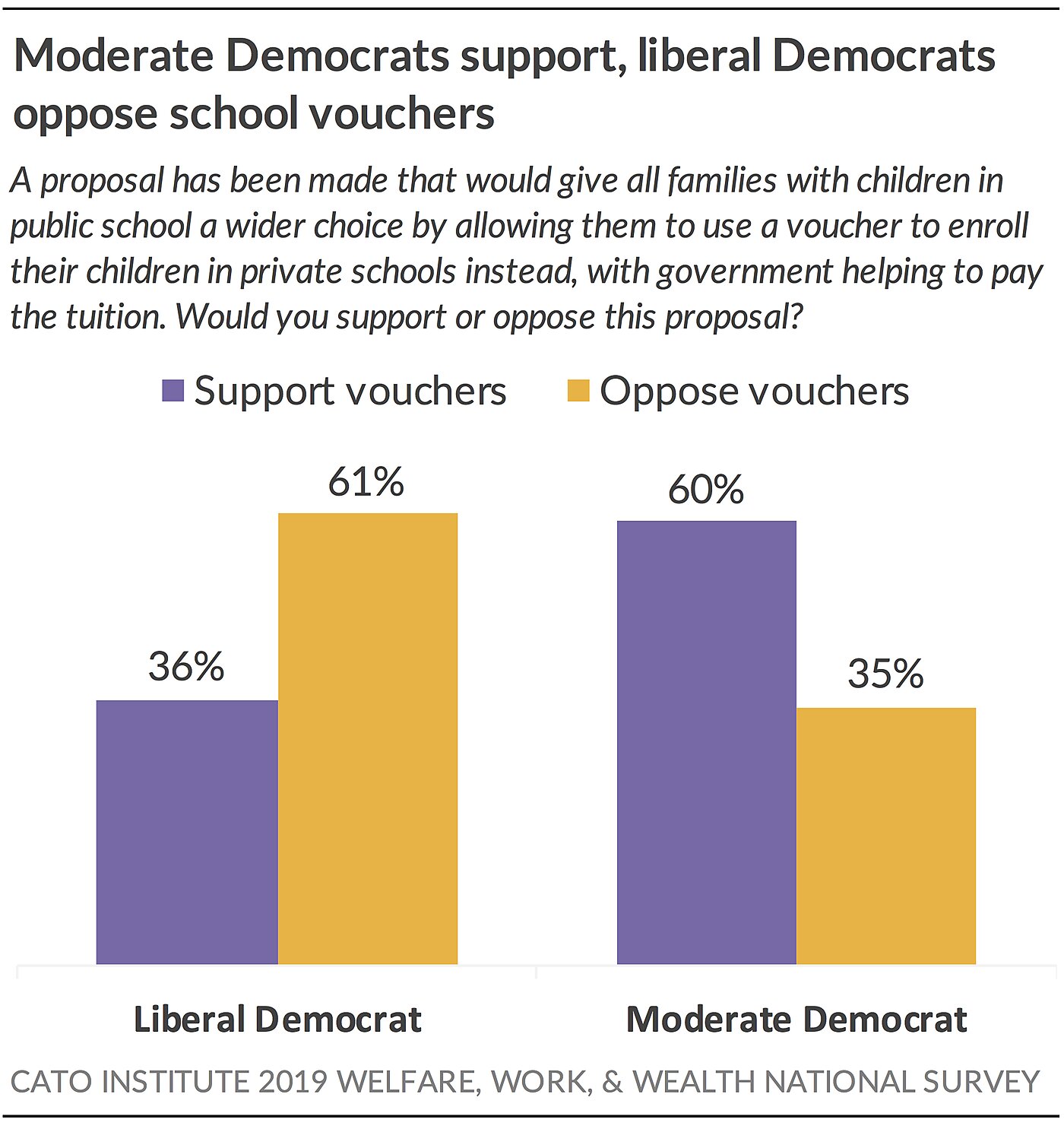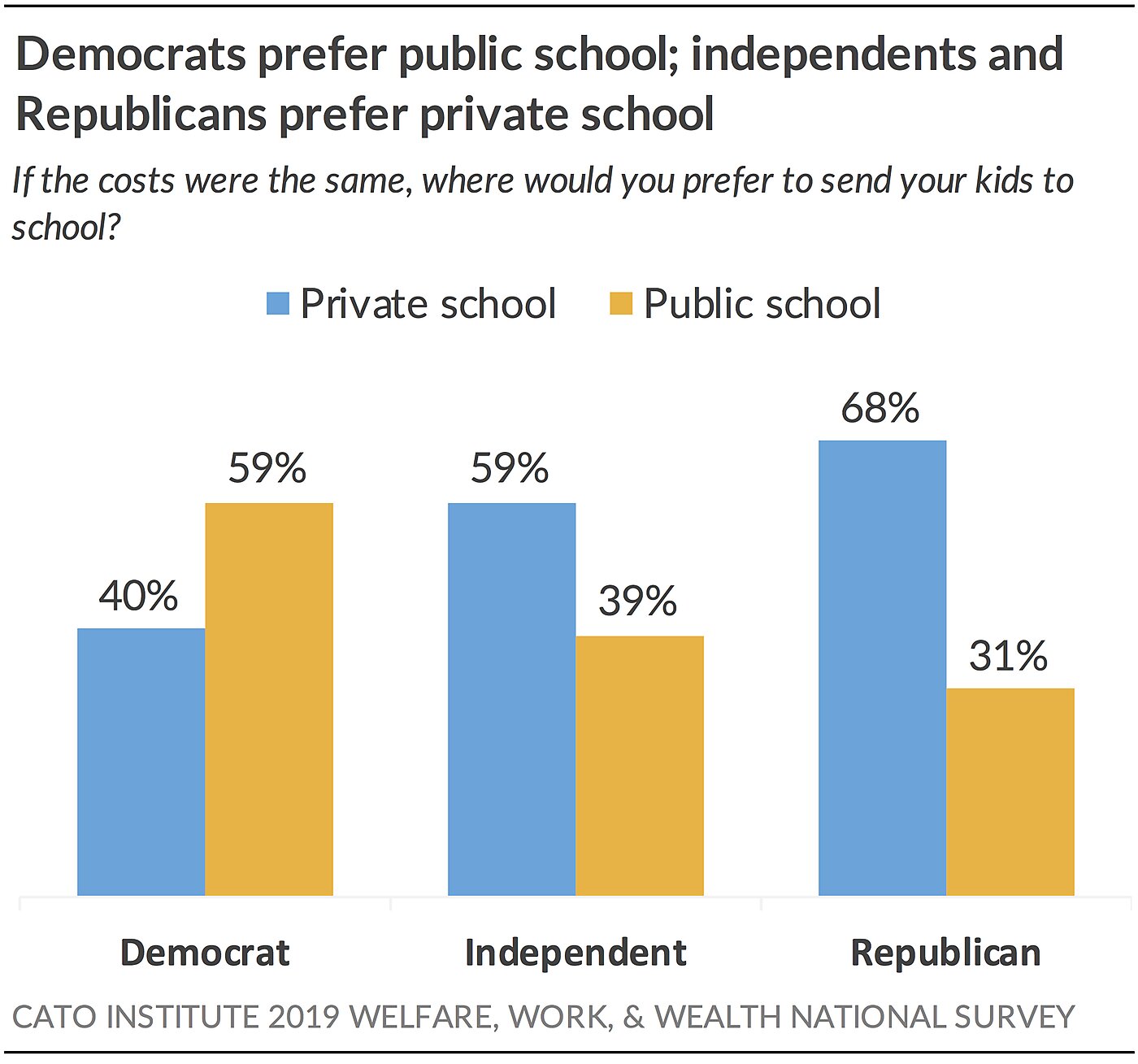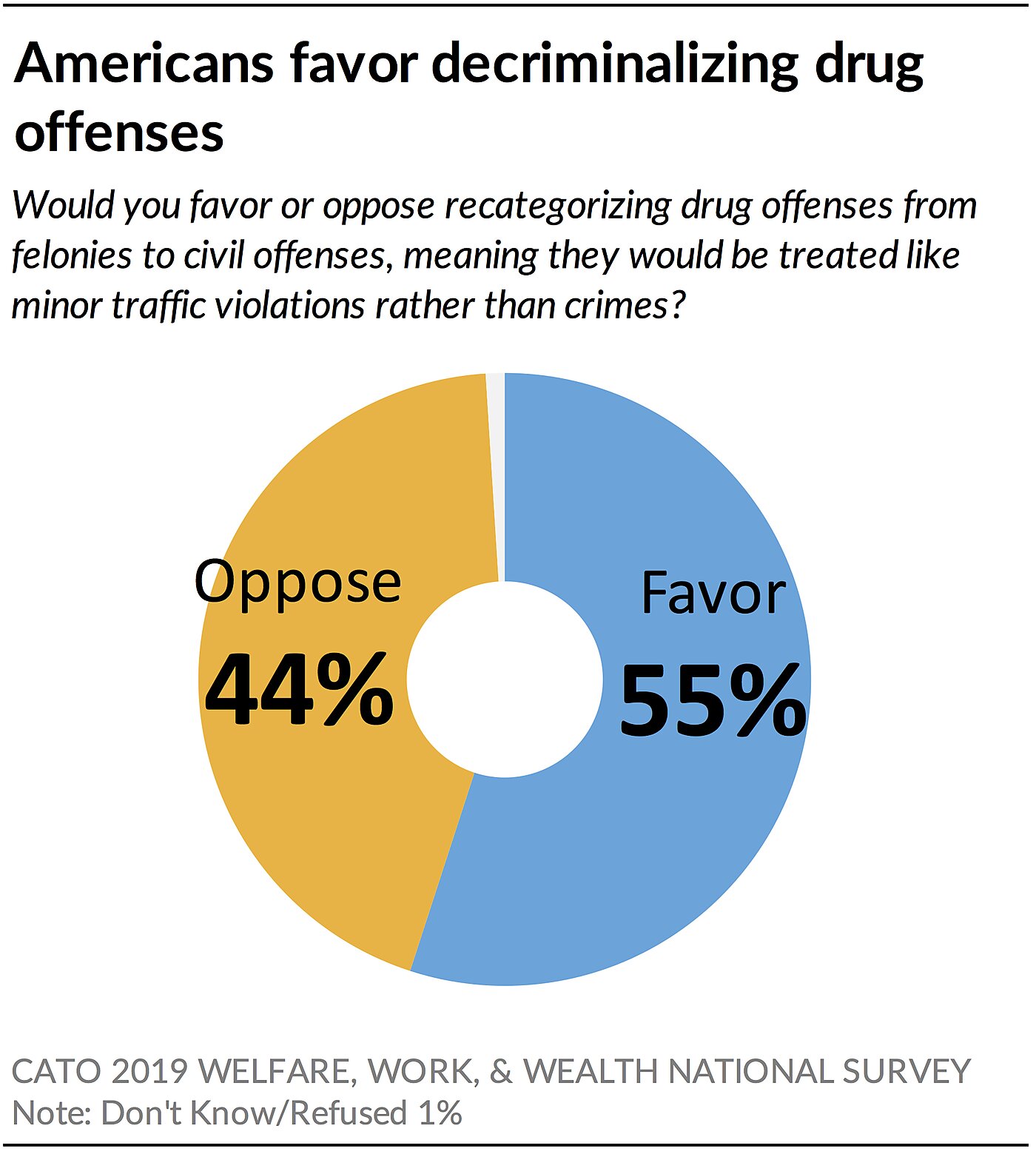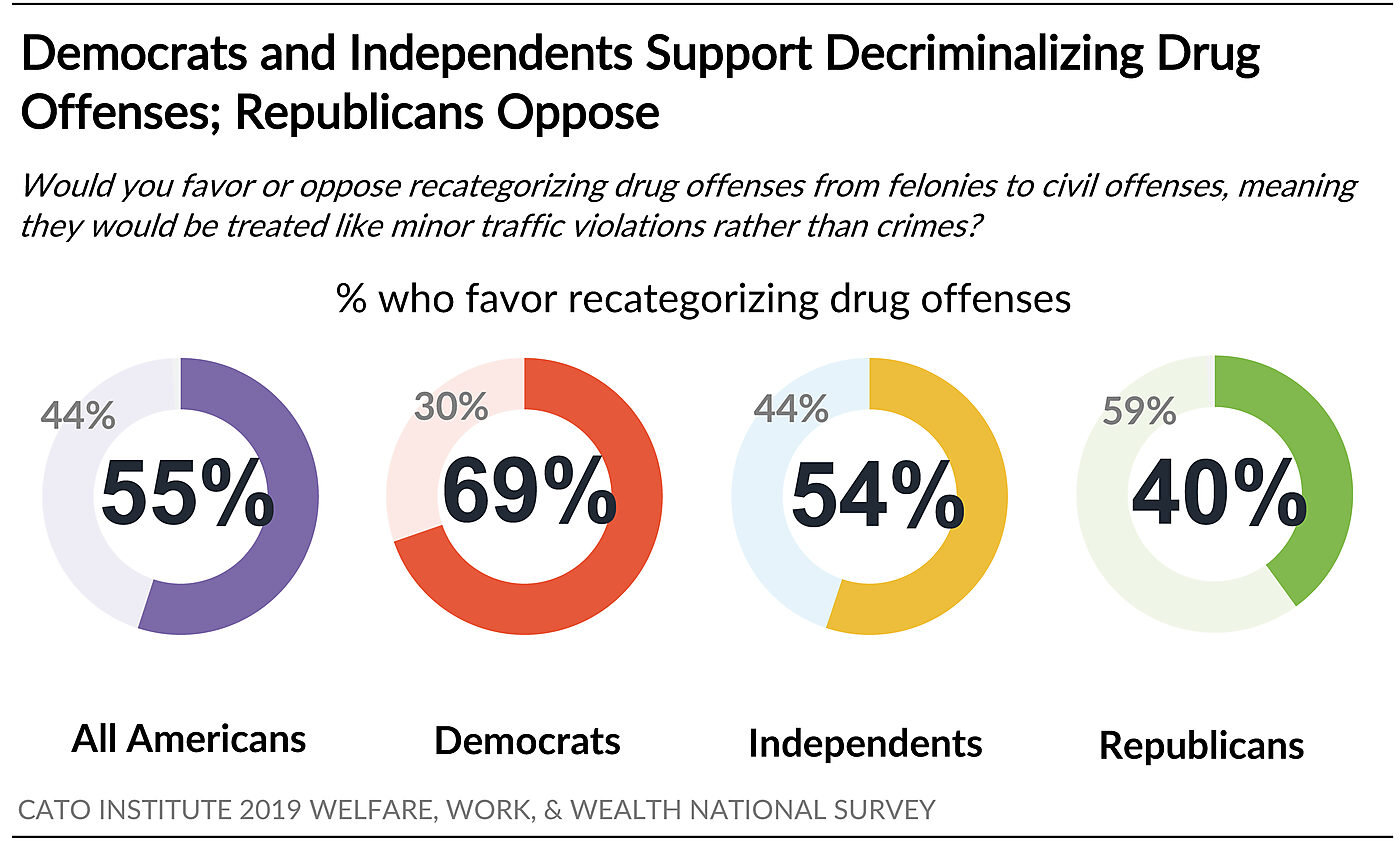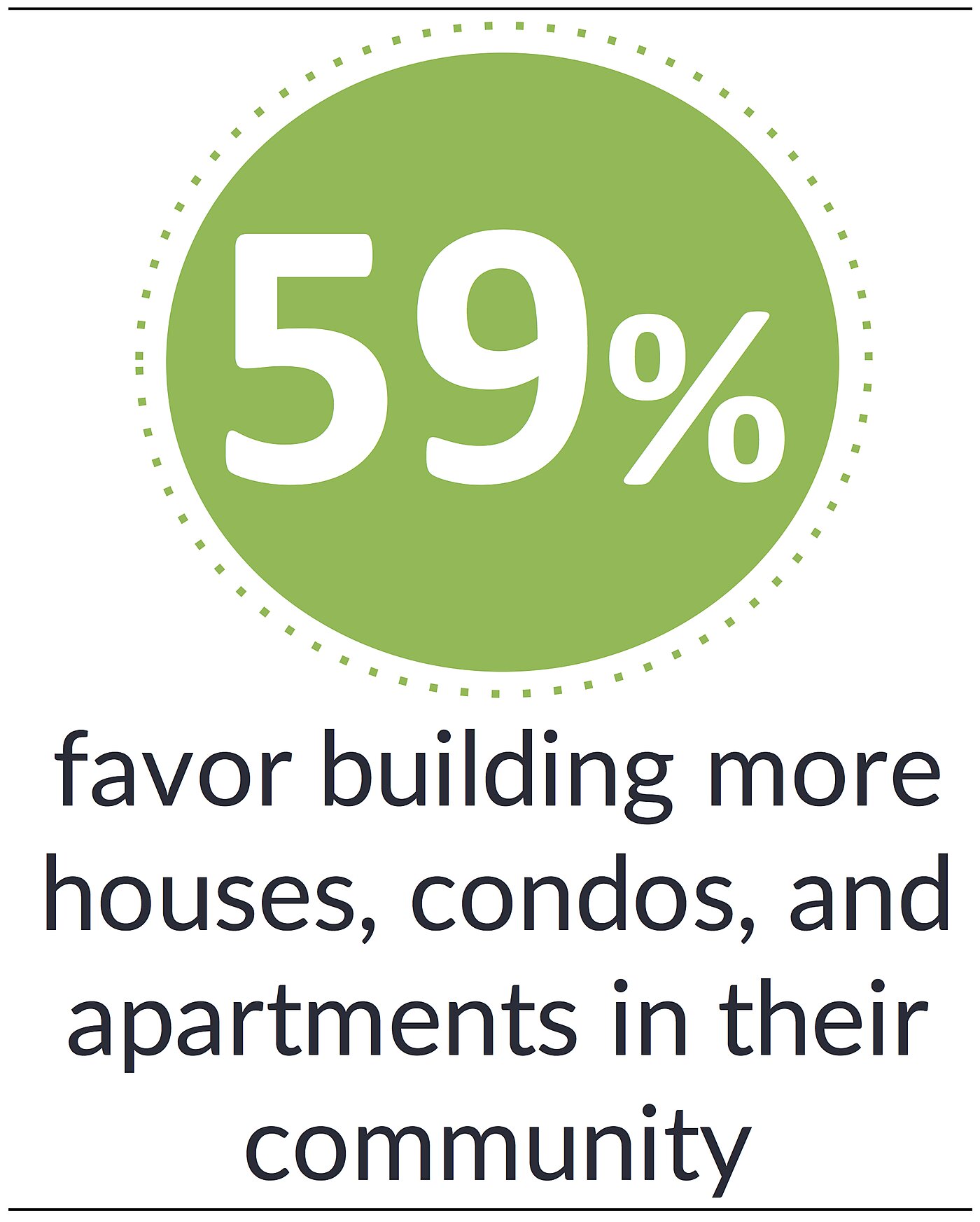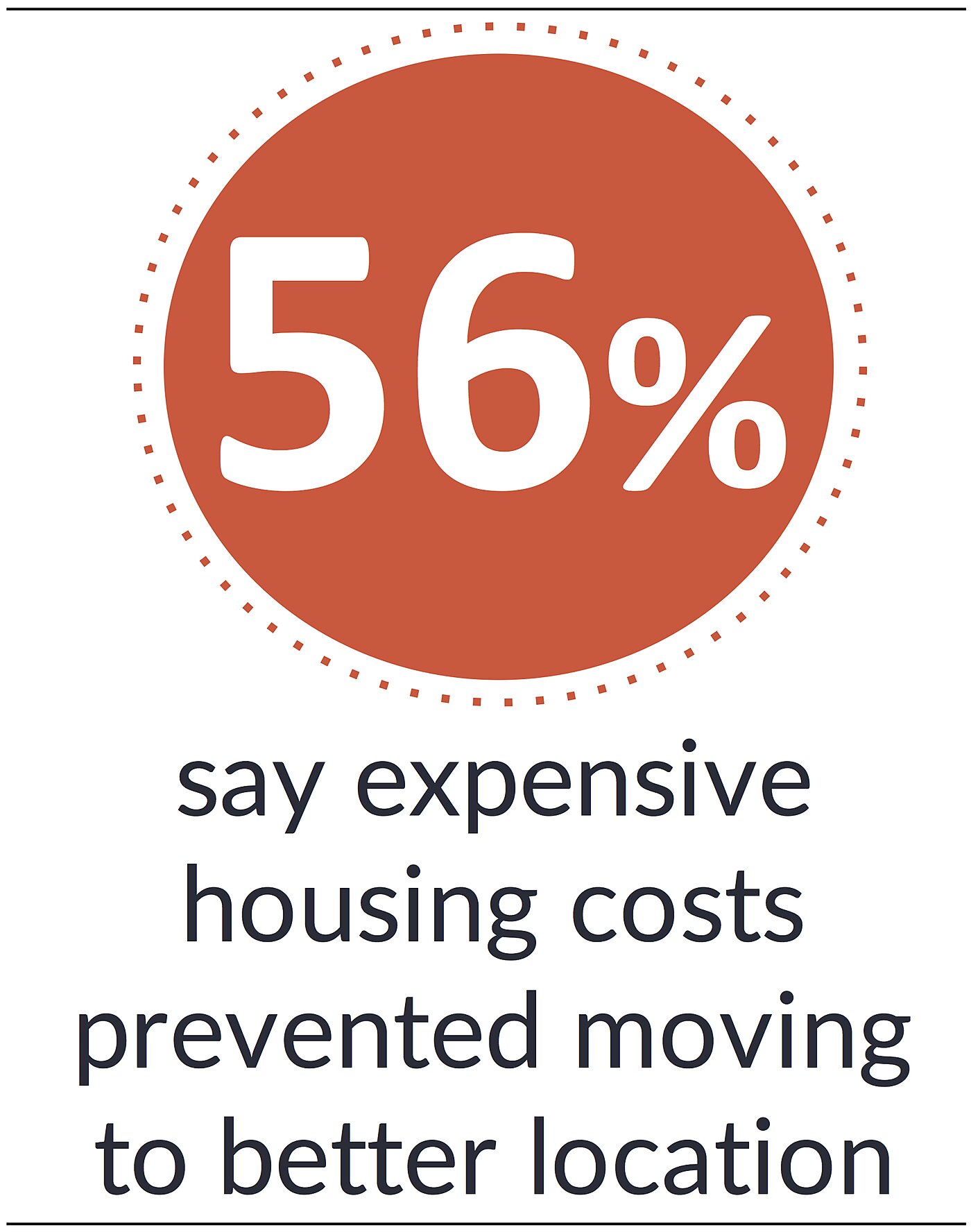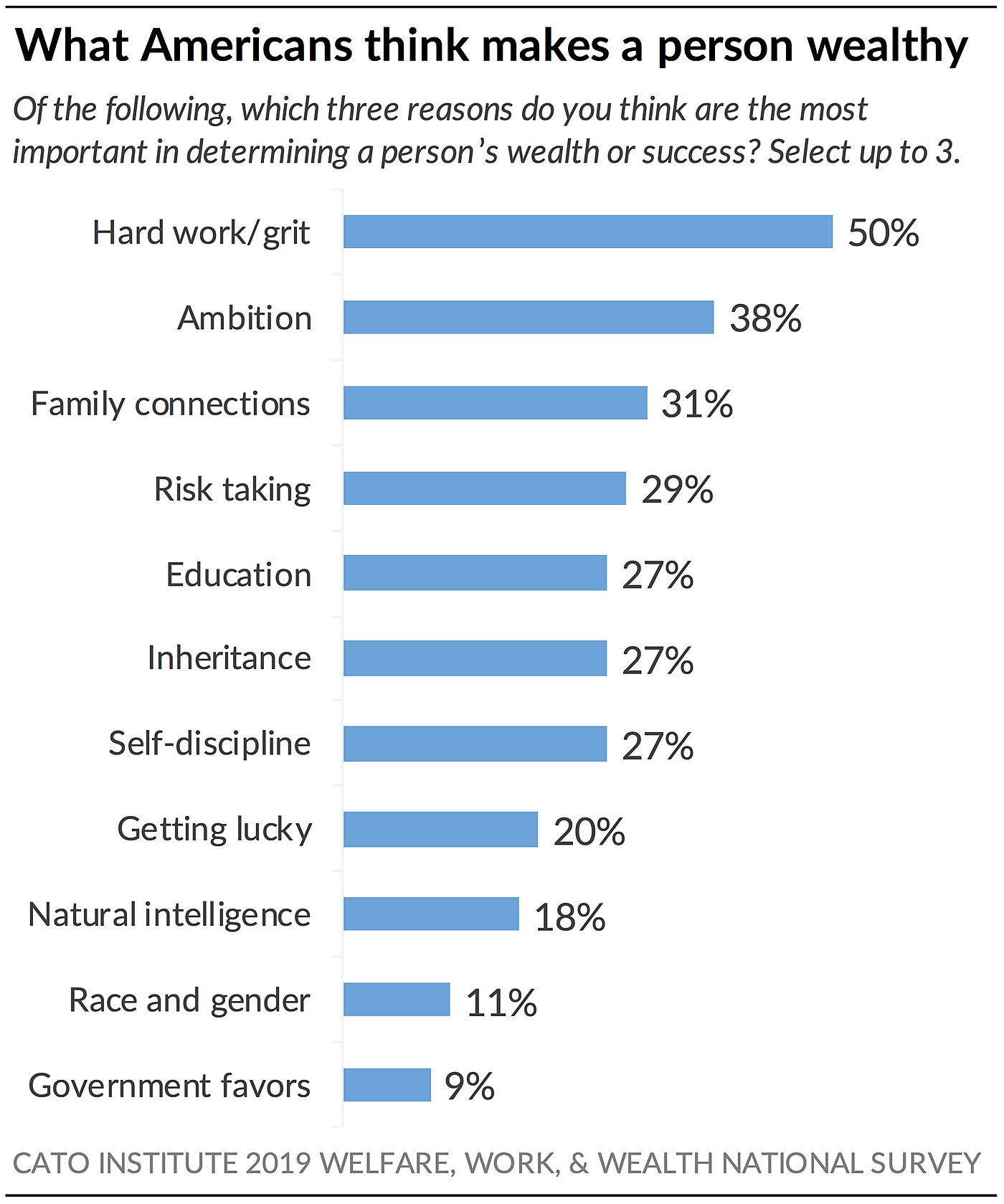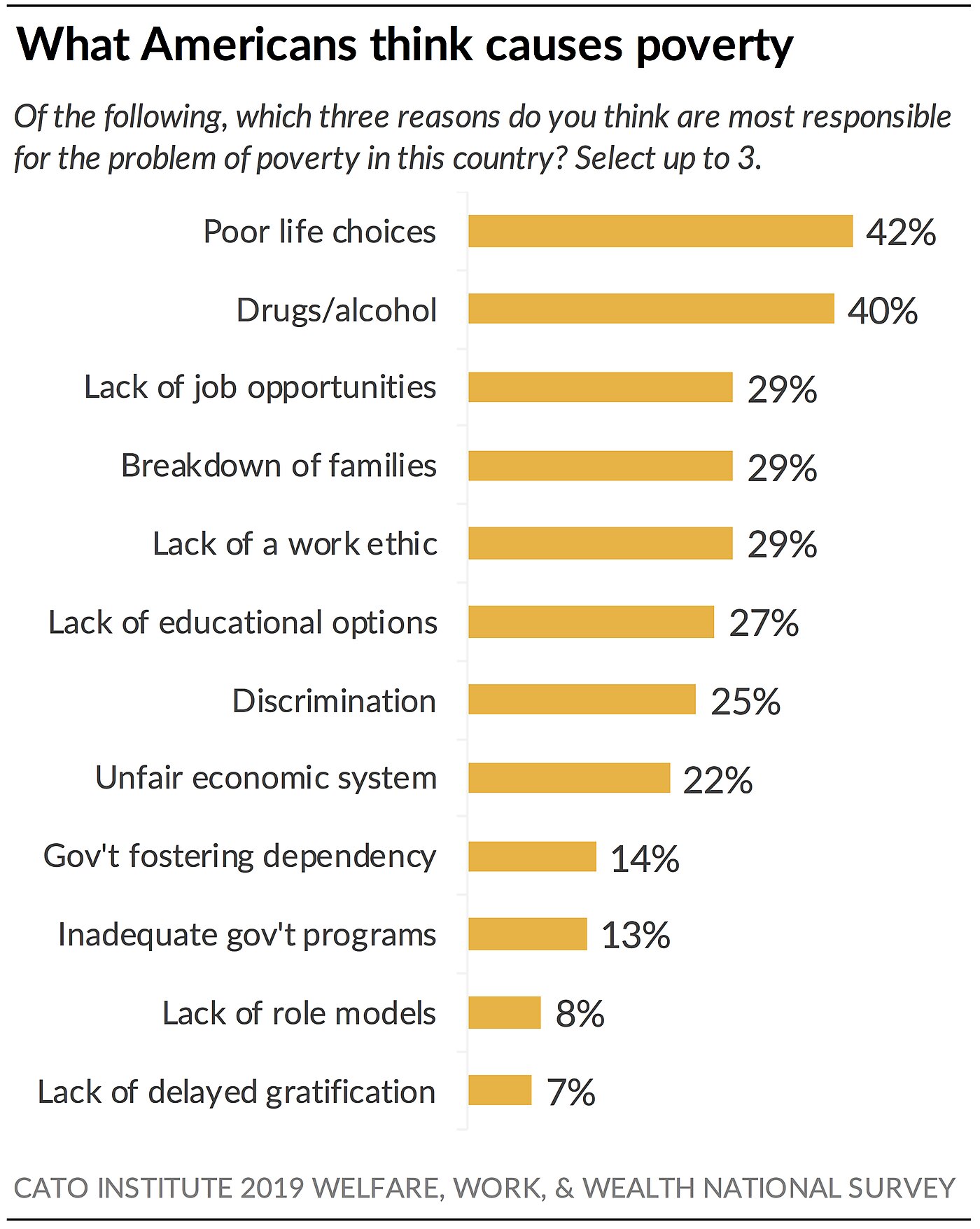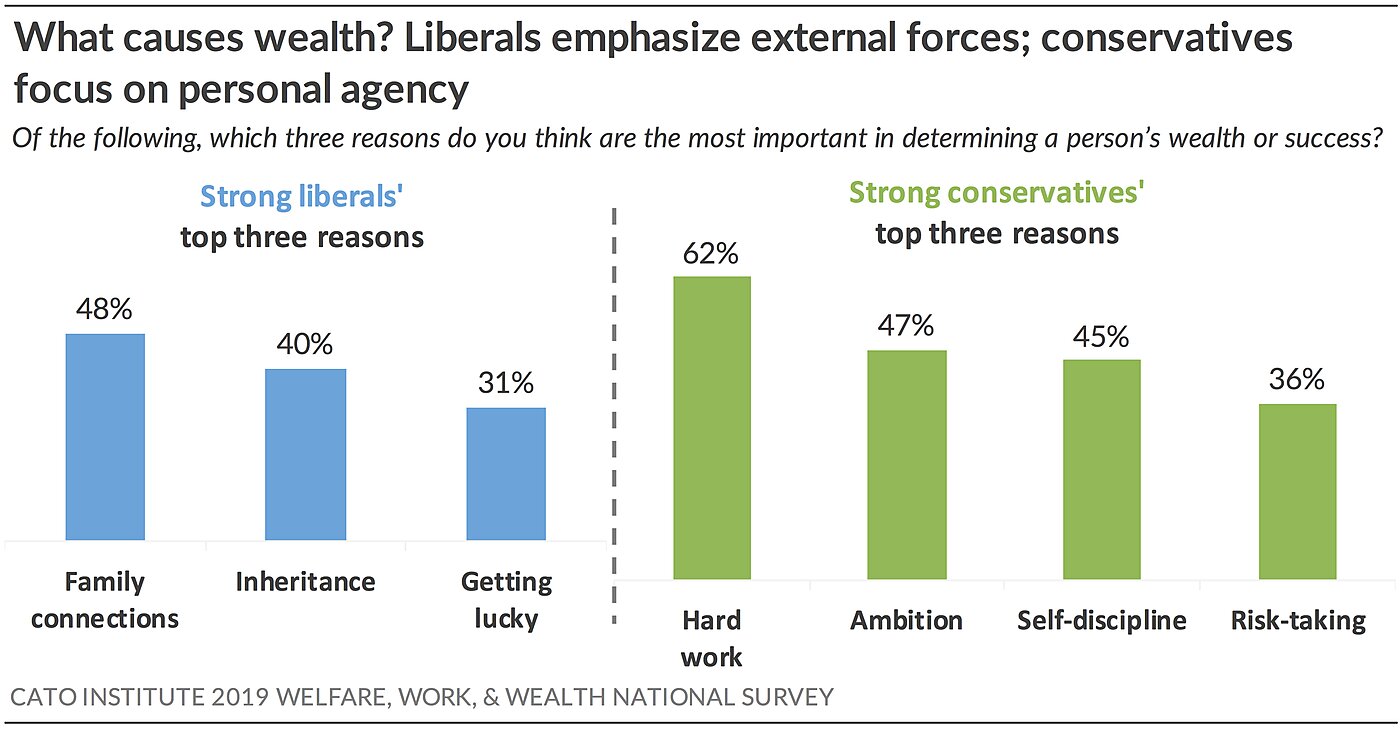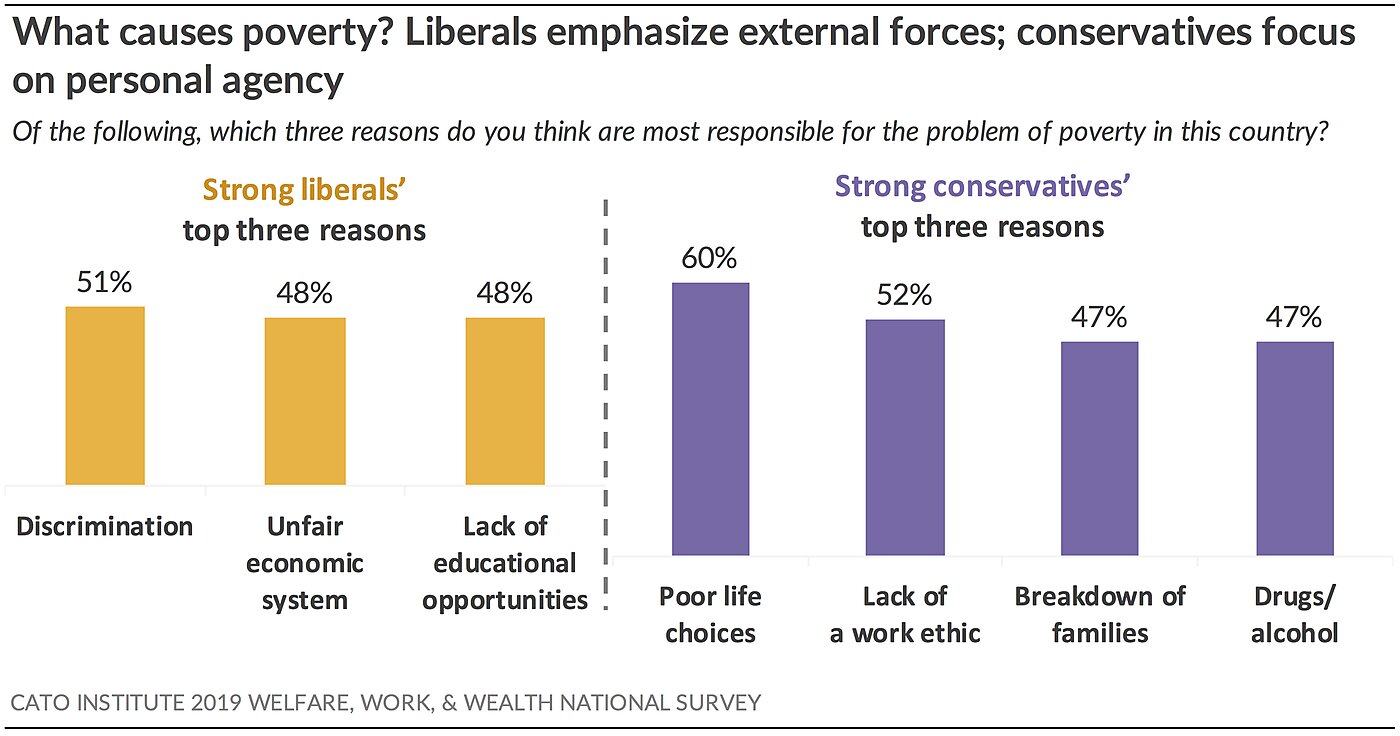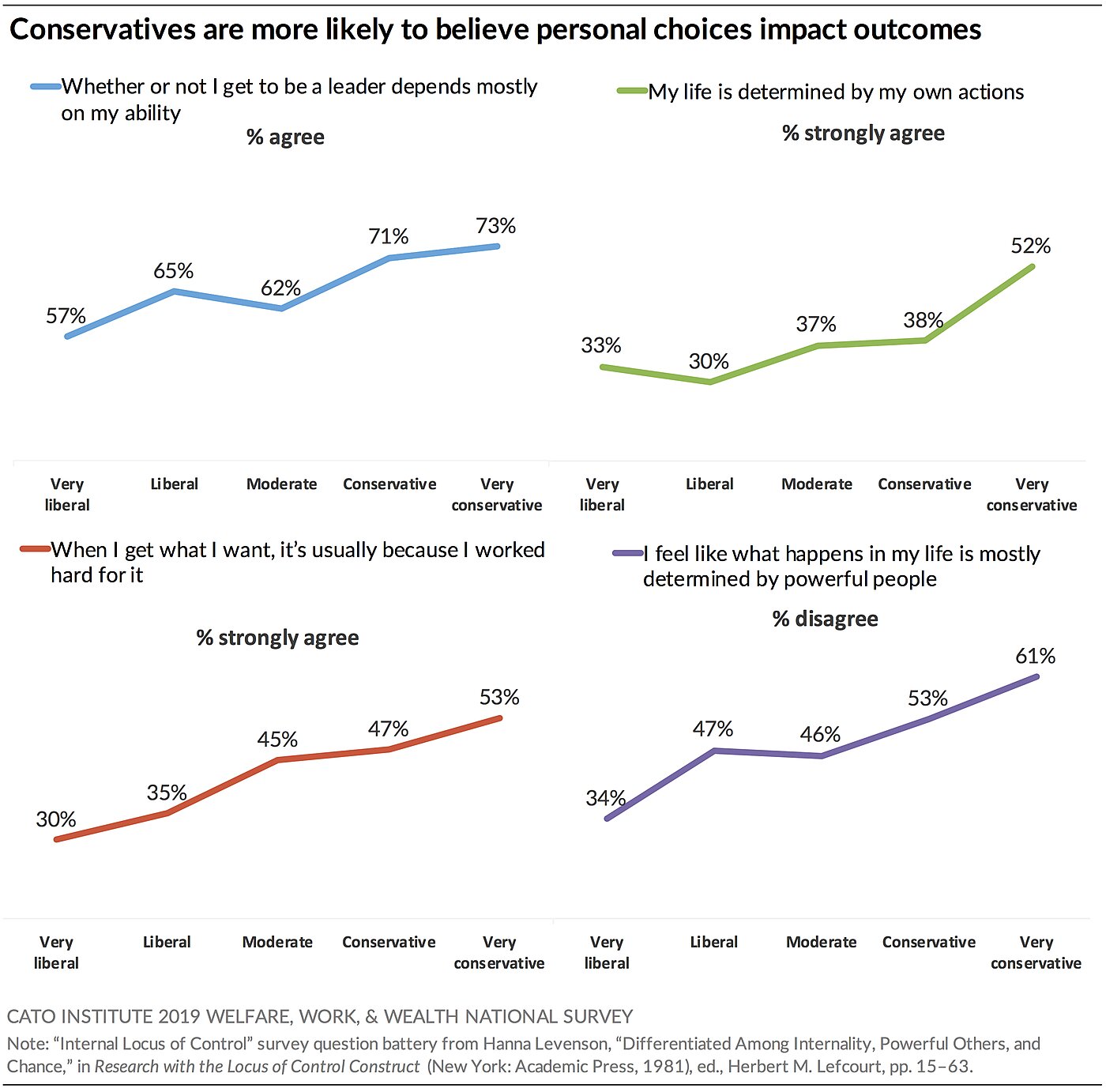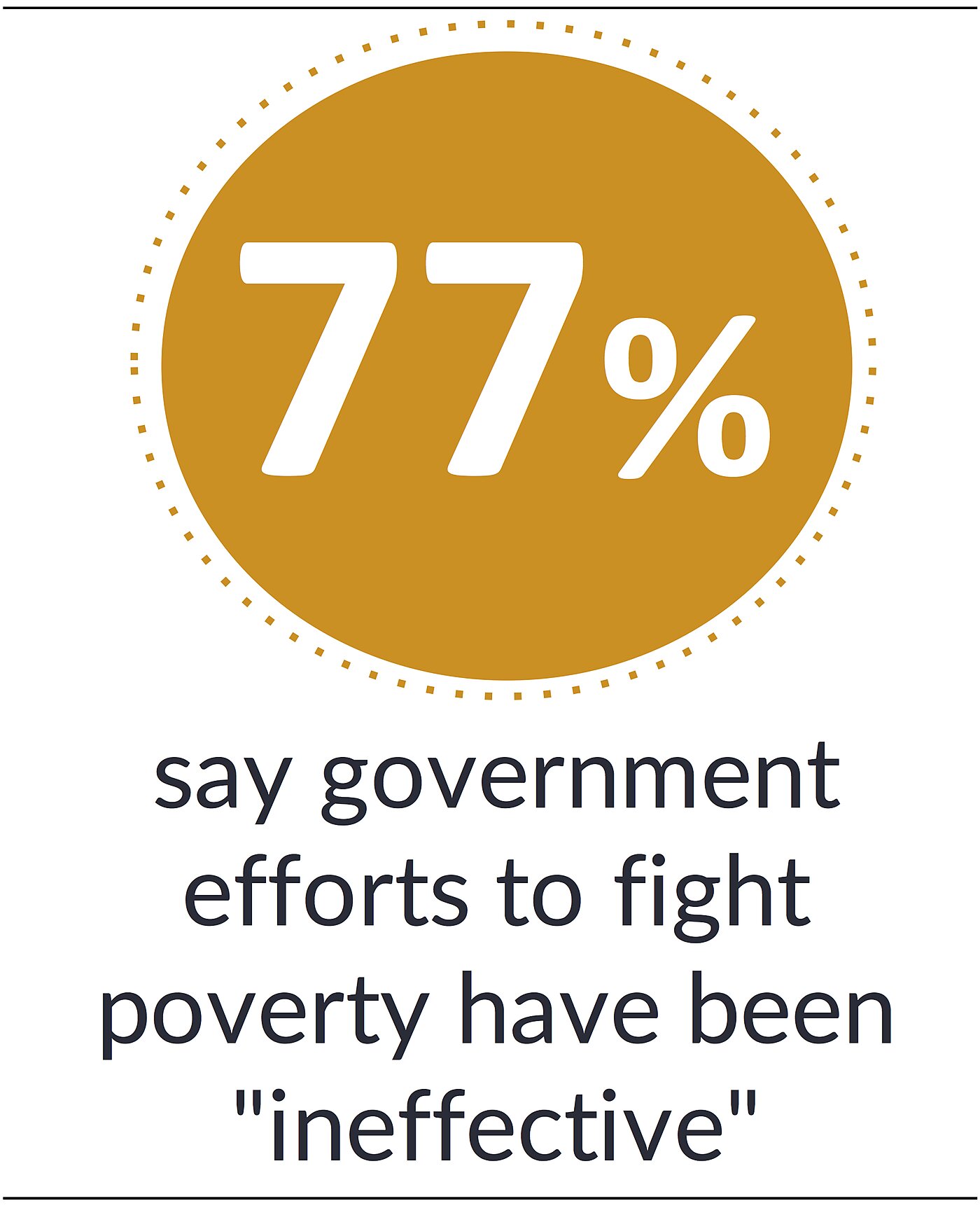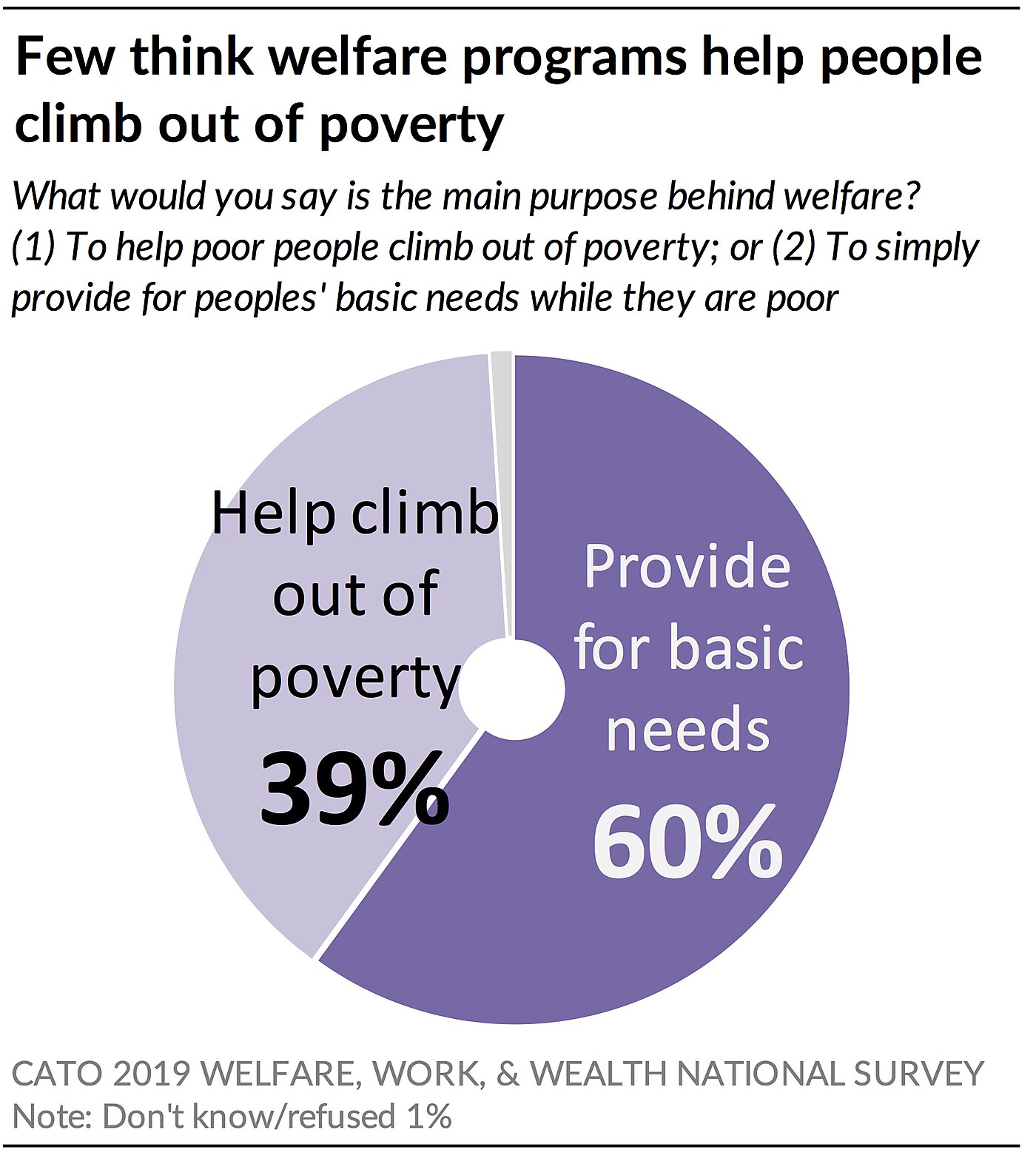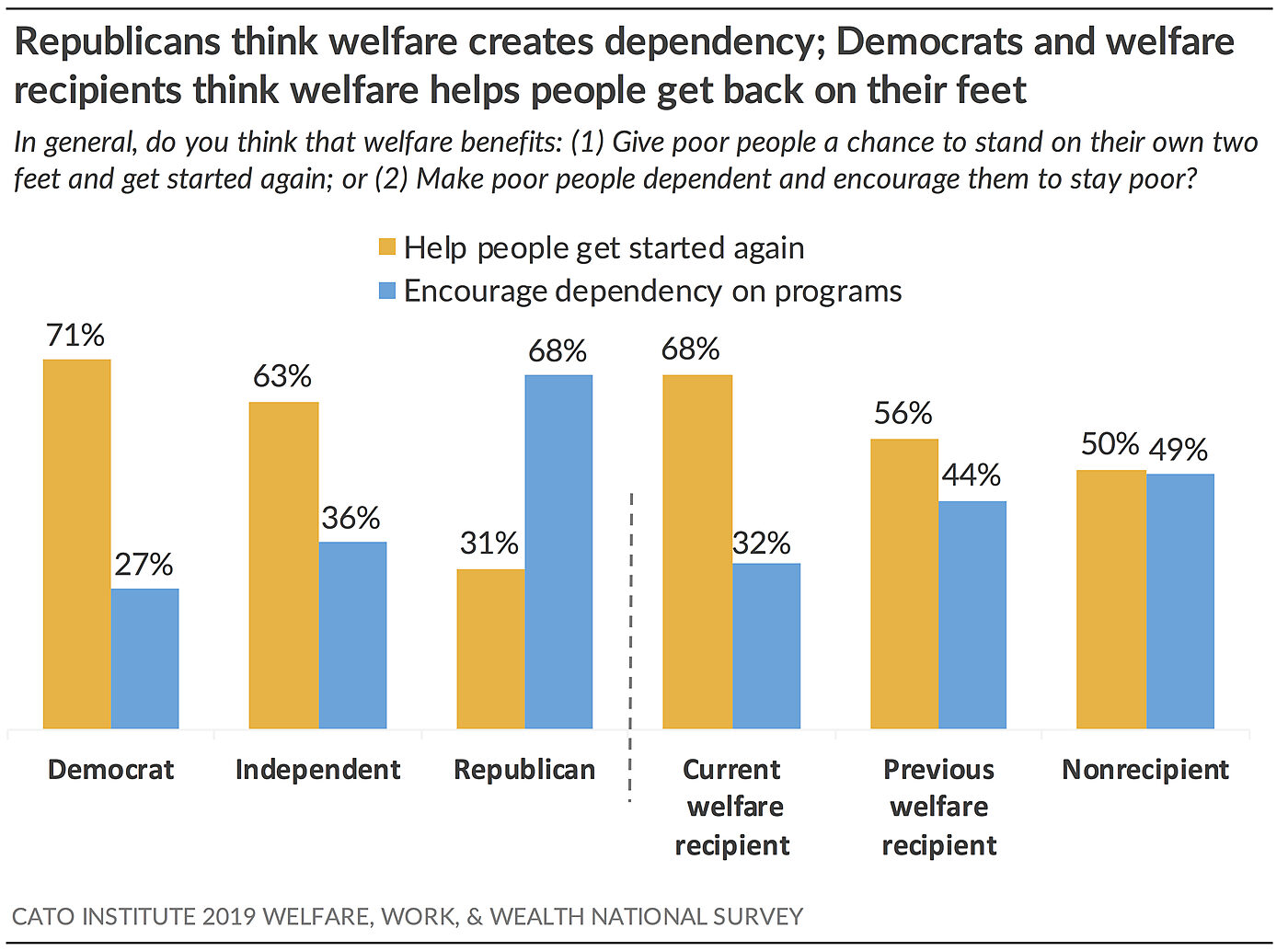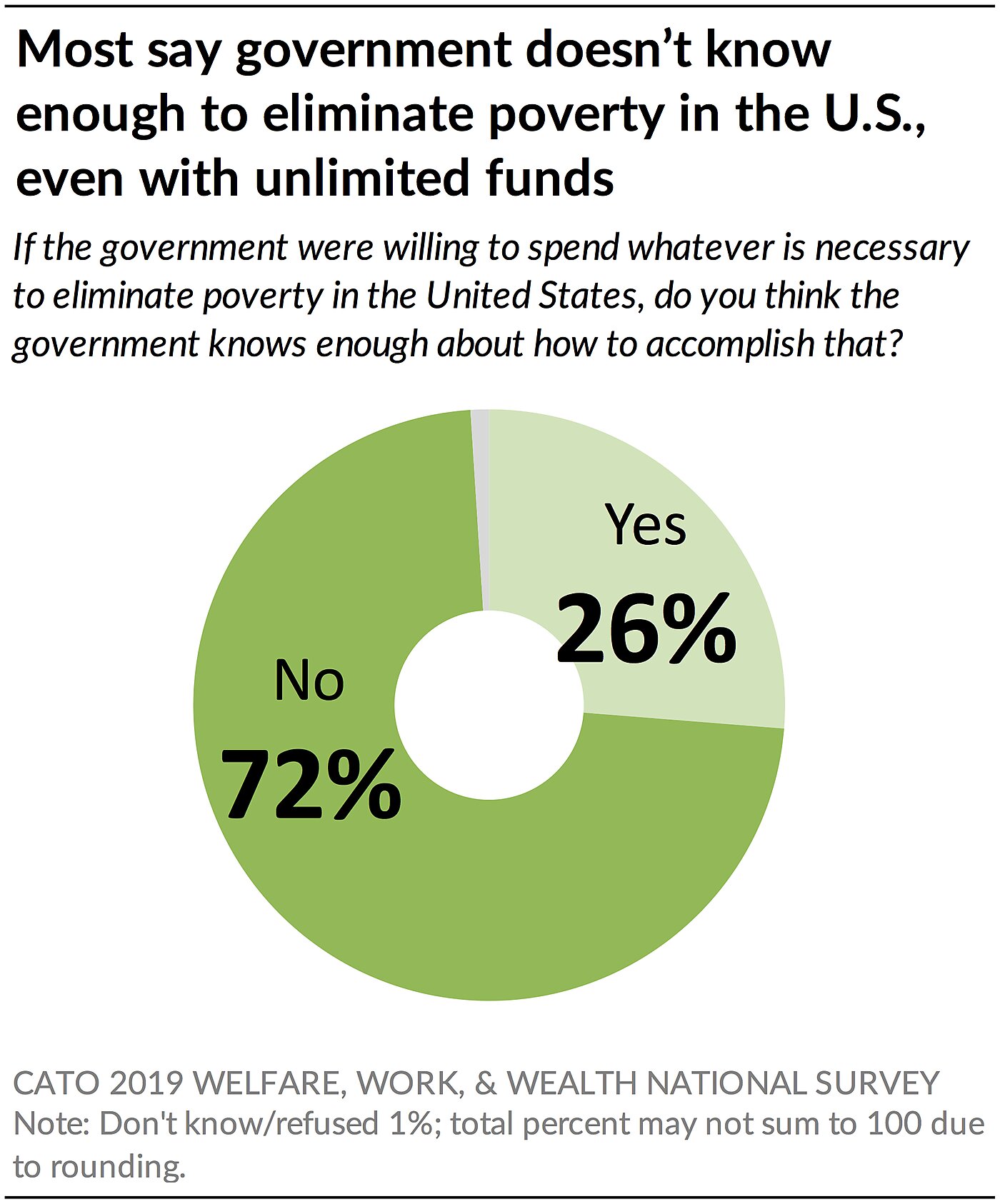The Cato 2019 Welfare, Work, and Wealth National Survey of 1,700 Americans investigated if Americans prioritize seeking personal fulfillment or fulfilling obligation.
A slim majority (52%) say it’s more important for them to “work hard and do what is expected of you,” while 47% say it’s more important for them to do things that “give you personal satisfaction and pleasure.”[1]
Republicans Prioritize Fulfilling Obligation; Democrats Prioritize Seeking
Personal Satisfaction
Partisans are starkly divided. Nearly two-thirds (65%) of Republicans say it’s more important in their own lives to work hard and do what is expected of them. In contrast, a solid majority (57%) of Democrats say it’s more important for them to pursue things that give them personal satisfaction and pleasure.
Ideological differences are even more pronounced. Two-thirds (66%) of strong liberals say it’s more important to pursue pleasure and satisfaction while about two-thirds (65%) of strong conservatives say working hard and doing what is expected of them is more important.
Young Americans Seek Personal Fulfillment, Older People Say Hard Work and Fulfilling Obligation Matter More
Younger people, especially those under 45, are more likely to prioritize personal fulfillment while those over 45 say it’s more important to fulfill obligations. Fifty-three percent (53%) of Americans ages 18–44 say they prioritize the pursuit of personal satisfaction and pleasure. People ages 45–54 are evenly divided. Sixty-percent (60%) of those over 55 say that working hard and doing what’s expected of them matters more.
These results are remarkably similar to a Los Angeles Times survey from 30 years ago.[2]In 1989, most young Americans under 45 said they prioritized personal fulfillment over working hard and obligations (50% vs. 44%). However, a majority of Americans over 55 said working hard and doing what’s expected of them mattered more (57%) than pursuing personal satisfaction and pleasure (35%). Those in the young 1989 cohort who prioritized personal satisfaction then are about 50–75 years old today and now say hard work and fulfilling obligation matter more. This suggests that Americans change their minds about what’s more important as they get older.
Beliefs About Capitalism and Socialism Linked to Attitudes Toward Hard Work and Personal Fulfillment
Attitudes toward obligation and personal fulfillment are related to views of capitalism and socialism. Americans very favorable to capitalism (65%) say it’s more important to work hard and do what’s expected of them. Conversely, Americans very favorable toward socialism (59%) say it’s more important to seek personal satisfaction and pleasure.
Perhaps some are drawn to capitalism or socialism based on their personal expectations: seeking personal fulfillment or to fulfill obligation. If one prioritizes hard work and obligation, they might be drawn to a capitalist system because that system would reward production and hard work. But if one prioritizes pursuing personal satisfaction, perhaps they are drawn to a socialist system because it would provide for their needs irrespective of what they produce, thereby offering the autonomy to pursue endeavors that provide personal satisfaction.
Full survey results and report found here.
Read more of the survey report here.
The Cato Institute 2019 Welfare, Work, and Wealth Survey was designed and conducted by the Cato Institute in collaboration with YouGov. YouGov collected responses online March 5 to 8, 2019 from a representative national sample of 1,700 Americans 18 years of age and older. The margin of error for the survey is +/- 2.2 percentage points at the 95% level of confidence.
Sign up here to receive forthcoming Cato Institute survey reports.
[1]A 1958 survey found that 63% of Americans agreed that “people should place more emphasis on working hard and doing a good job than on what gives them personal satisfaction and pleasure.” About a quarter (23%) disagreed and 15% were unsure, cited in McCloskey and Zaller, The American Ethos, p. 108.
[2]Los Angeles Times, National Survey, 1989, accessed via the iPoll Database at the Roper Center for Public Opinion Research, Cornell University, Ithaca, NY.
